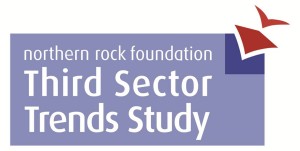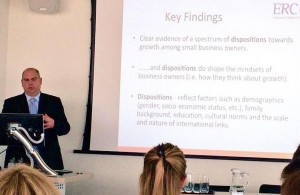Tackling the challenges facing rural & remote areas in Northern England: A seminar organised by the Institute for Local Governance
Kirkley Hall Campus, Northumberland College, Ponteland, Friday 16 October 2015 9.30 – 1.00
This seminar will explore the economic, social and environmental challenges facing rural and remote areas of Northern England and consider the role the public, private and voluntary sectors must play to address them. Confirmed speakers include Professor Mark Shucksmith, Newcastle University; Professor Frank Peck, University of Cumbria; Graham Haywood, Director, Cumbria Local Enterprise Partnership; David Sharrod, Director, Yorkshire Dales Millennium trust, Doff Pollard and Rita Lawson, Chief Officers, Tees Valley Rural Community Council; and, Professor Keith Shaw, Northumbria University. The seminar will be opened by Councillor Allan Hepple, Cabinet Member for Economic Growth, Northumberland County Council.
The timing of the seminar is important, following the recent publication of the Government’s wide-ranging 10 point plan for boosting rural productivity. So, to achieve a strong regional focus, the seminar’s debate will centre on one key question – how will rural and remote areas be affected by proposed devolution to “Northern Powerhouse” Local Enterprise Partnerships (six of which work in or across the boundaries of Cumbria, North East England and North Yorkshire ).
The seminar will draw on policy analysis and case studies from across Northern England to explore how rural and remote areas are faring in a period of public sector austerity. But this is not merely an opportunity for people to complain or sympathise about the difficult social and economic situation people can face in rural areas. What we want to do is to debate what people in rural and remote areas should do about it and how to get their voices heard.
Below this top-line issue, we want people to discuss a range of themes including: business and finance, housing and community wellbeing, young people’s education and routes to the labour market, transport and communications, and maintaining a strong civil society. There’s also room for analytical depth, by discussing, for example: the difference between rural rich areas (where affluent urban commuters and retirees generally live) and rural poor areas (with a focus on housing, work, transport and health issues); the situation of isolated industrial towns and villages in rural areas (such as Barrow and Workington, Ashington, Loftus and Skinningrove); and, issues surrounding business and enterprise development in more isolated areas.
The debate needs to be wide ranging, so we’re interested in welcoming attendees with different perspectives: political, local authority, business and the voluntary sector. The seminar is free to attend, but places are limited and they tend to book up quickly, so please register your attendance via: Janet Atkinson, Institute for Local Governance, Durham University janet.atkinson@durham.ac.uk.
The Institute for Local Governance is a North East Research and Knowledge Exchange Partnership established in 2009 comprising the North East region’s Universities, Local Authorities, Police and Fire and Rescue Services. Further information about the content of the event can be obtained by contacting:- tony.chapman@durham.ac.uk or john.mawson@durham.ac.uk.
The Power Point slides from this successful event can be downloaded here: Frank Peck, Graham Haywood, Keith Shaw, Doff Pollard & Rita Lawson, Mark Shucksmith.
A Northern Echo leader article discussed the outcome of the seminar which can be found here.








